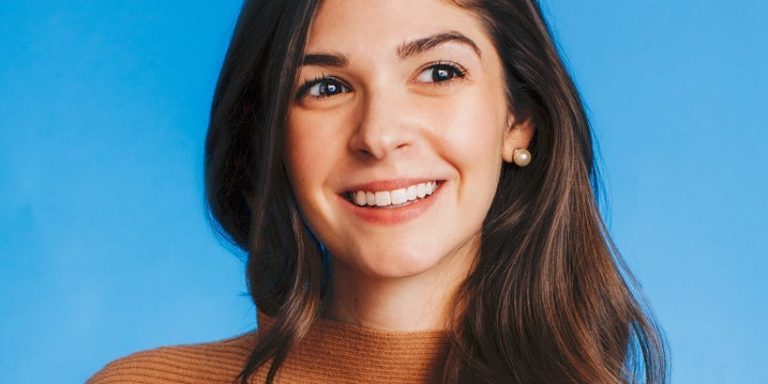
- Alexis Gay, a former Patreon employee, quit her job to become a full-time comedian and podcaster.
- In the last year, she has racked up 2.9 million followers on Clubhouse and thousands across platforms.
- She’s most well-known for her videos on Twitter, where she pokes fun at Silicon Valley tech culture.
- Read more on the Insider homepage.
You may have seen Alexis Gay on Twitter, where her videos playfully skewering Silicon Valley culture often go viral.
A recent post captioned “every single park hang in San Francisco” — where she spouts quips like “Oh, are those the new AllBirds?” and “That valuation was actually hilarious … they don’t even have any users” — has 1.9 million views.
Gay has racked up nearly 3 million followers on audio app Clubhouse and more than 82,000 on Twitter and also runs a podcast where she interviews media, business, and tech moguls about “everything but their resume.”
In January of 2021 she decided that she was reeling in enough ad revenue from that project to take the plunge and quit her tech-company day job to focus on her comedy and podcast career full-time. Here’s how she became the :
—Sheel Mohnot (@pitdesi) March 10, 2021
Her journey from tech to comedy
Gay had moved to New York for school with the dream of becoming an actor, but her first taste of the tech world as an intern at an events startup in 2013 hooked her. In true techie fashion, she fell in love with the “meritocracy of it” and eventually nabbed her first San Francisco gig at developer-focused firm Twilio in 2016.
She eventually moved on to Patreon in 2018 and started hitting up open mics and improv classes in her free time. She’d mostly crack jokes at her own expense, making fun of how she was the kind of person who would flirt in an UberPool or about how her parents essentially named her “Alex Is Gay.”
As a New York transplant and tech worker going to work and parties surrounded by other tech workers (or even just overhearing conversations in the park), she also began realizing that many of the cliches and stereotypes around Silicon Valley culture felt uncannily accurate.
“I think something about the videos that maybe most people don’t realize is that I’m really making fun of myself as much as I’m making fun of anybody else,” Gay told Insider.
She was having a blast hosting shows at comedy clubs when the pandemic abruptly shut the city down and, like everyone, she had a lot of time on her hands.
Having “the attention span of a couple of hours at a time, maybe” inspired her to start creating “really short, bite-sized content,” she said.
Her first viral moment came in April 2020 when her video captioned “every single party in San Francisco” took off. While she doesn’t just make videos about tech culture — she’s joked about going to couples counseling with CNN, her reactions to the end of 2020, and what it would be like to receive the gifts from the song “12 Days of Christmas” — she thinks her San Francisco videos get a lot of views because of their relatability.
“I think it’s fun to take a minute and enjoy the humor in our daily lives, which we might normally miss because we’re so busy in back-to-back meetings,” Gay quipped.
Many of the cringey tropes are things she really experiences. For example, a line in her park video about hybrid work was inspired by her own experience driving by the massive Salesforce tower downtown and genuinely wondering how the firm would handle going back to the office.
“Like that happens to me regularly and it’s mortifying, but it’s true,” she said.
Bolstered by the success of her viral videos, Gay started playing around with the audio chat app, Clubhouse. She met the app’s founder in April 2020 in a Clubhouse room and pitched the idea of doing a regular talk-show — he loved the idea and told her to go for it.
Now, with over 2.9 million Clubhouse followers, Gay hosts a room with a cast of rotating guests every Monday at 5:30 PM PT called “Housin’ Around. She launched her podcast — dubbed “Non-Technical” — in December 2020 where she gabs with industry experts about everything from how they take their coffee to whether they believe in ghosts. She started hooking sponsors right away.
“What I’m hoping that it gives the audience — cause this is definitely what it gives me — is a little peek behind the curtain at who this individual is outside of their very impressive LinkedIn,” Gay said. “And I think that that’s important because in tech there can be so much idolatry — oftentimes very well-deserved idolatry — that it creates a little bit of a barrier between the person and then the people who admire them.”